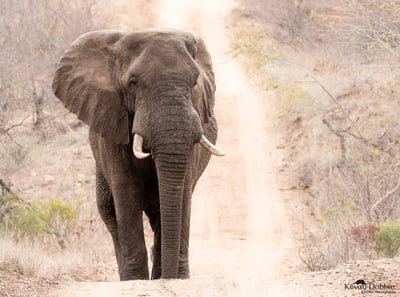Addo Elephant National Park
Located just outside Gqeberha (formerly Port Elizabeth) in South Africa’s Eastern Cape, Addo Elephant National Park is the country’s third-largest national park after Kruger and Kgalagadi, protecting a diverse range of landscapes from dense thicket to coastal dunes. Home to over 600 elephants, as well as lions, buffalo, black rhinos, and the flightless dung beetle, Addo offers a unique chance to see the “Big Seven” - including whales and great white sharks in its marine section. With well-maintained roads, guided game drives, self-drive routes, and a variety of accommodation options, Addo is an accessible and rewarding destination for nature lovers and first-time safari-goers alike.

Visitor Guidelines
To ensure your visit to Addo Elephant Park is safe and enjoyable, please take note of the following guidelines. These rules help protect both visitors and wildlife, allowing everyone to have a memorable experience.
Park Rules & Safety
🚗 Speed limits: Maintain a speed of 50 km/h on paved roads and 40 km/h on gravel paths.
🦣 Remain in your vehicle: You must stay inside your vehicle at all times unless in designated areas. Leaving your vehicle in restricted zones is not allowed.
🍽️ Do not feed wildlife: It's important not to feed the animals, as it can disrupt their natural behaviors and harm them.
🛑 Follow designated routes: Only travel along marked roads; off-road driving or accessing "No Entry" zones is prohibited.
🔫 Firearm declaration: All firearms must be declared at the entrance gate.
🏍️ No motorbikes or bicycles: Motorbikes and bicycles are not allowed within the park.
Park Facilities & Services
⛽ Fuel availability: Fuel is available at the park's main entrance, and at some rest camps within the park.
📶 Mobile signal & connectivity: There is generally good mobile reception near main camps but limited coverage in more remote areas.
Entry Requirements
🪪 Valid driver's license: You must possess a current driver's license to operate a vehicle within the park.
🧾 Documentation: You'll need a valid passport or ID for entry. Conservation fees are payable online or at the entrance. Wild Card holders may be eligible for free or discounted entry.
Environmental Responsibility
🌿 Respect nature: Do not disturb, take, or remove any items from nature, including rocks, plants, and animals.
🐕 Pets not permitted: Pets are not allowed within the park for the safety of wildlife and your animals.
🗑️ No littering: Please ensure you dispose of trash in the proper bins to maintain the park's pristine environment.
Health & Safety
💉 Malaria risk: Addo is situated in a malaria-free zone, but it's still recommended to check with your healthcare provider for any health precautions, particularly if you're traveling to other regions.
Photography & Visitor Etiquette
📸 Photography guidelines: Please be mindful of both animals and fellow visitors while taking photos. Avoid getting too close or disturbing wildlife to capture the perfect shot.
Park Hours
🕒 Operating hours: Addo has specific opening and closing times which can vary by season. Check current opening times